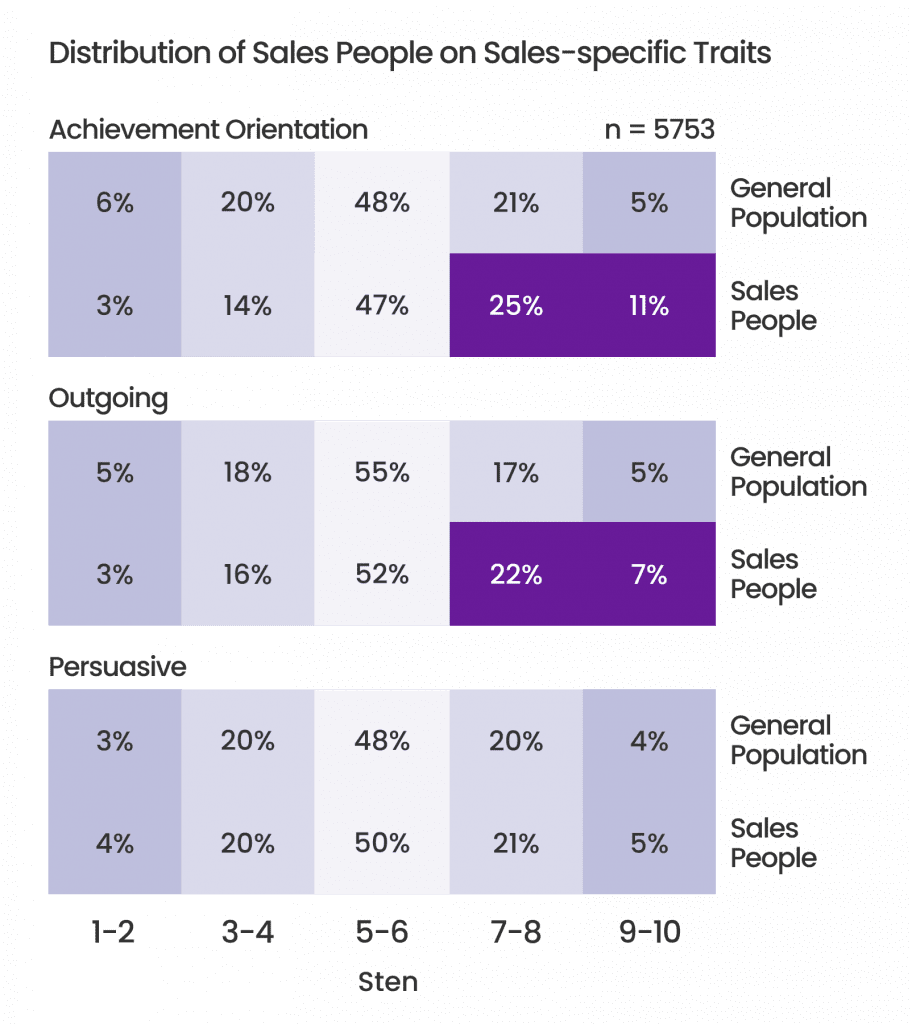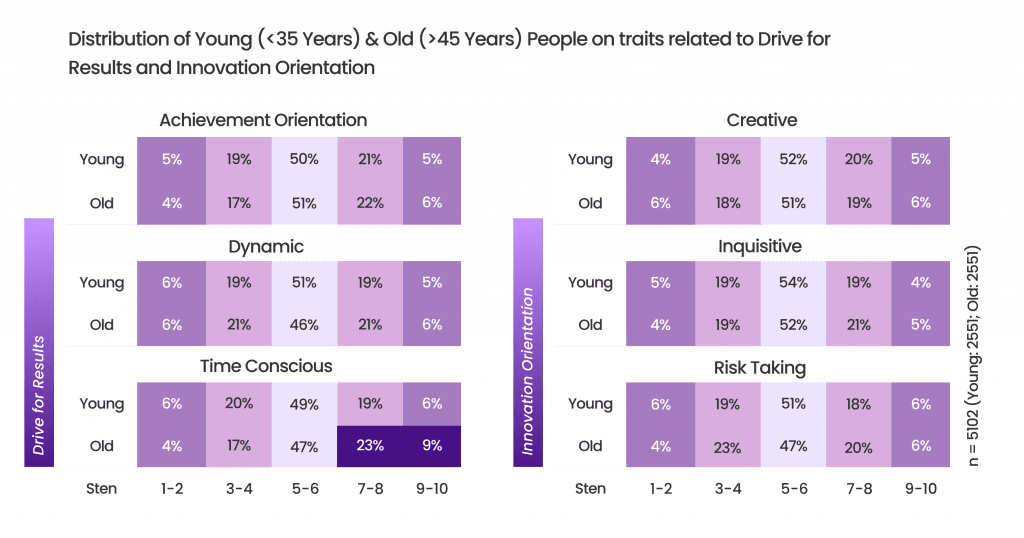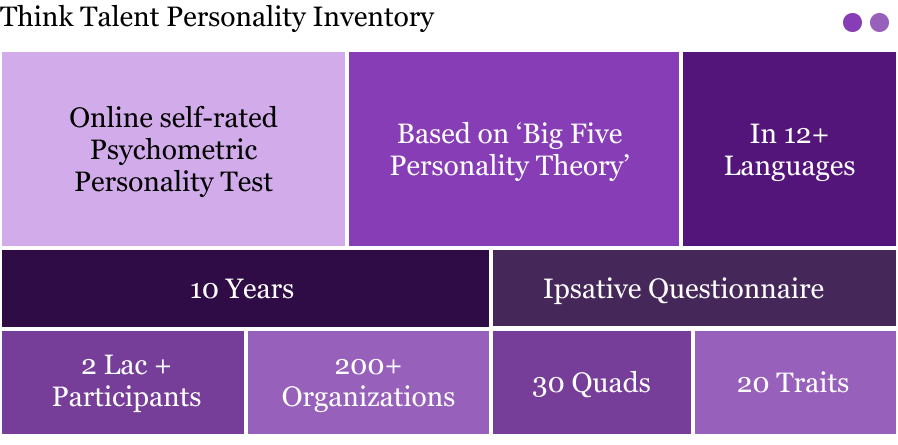Unconscious biases and perceptions can lead to discriminatory practices like selection & promotion and impact talent decisions in organizations. In this section, we evaluate some commonly held perceptions about specific cohorts of people using data from a scientifically designed psychometric instrument.
It is pertinent to point out that personality is only one of the influencers of the actual behavior of a person. However, psychometric data is a good indicator of “natural” orientation or preference of a person. The intent of the article is to bring up scientifically collected data to re-visit these perceptions.


Many of us associate sales professionals with being naturally charismatic and persuasive. Personality data for 5000+ sales professionals shows that % of sales professionals scoring high on related traits is only marginally higher than general population.
So, when we see a very persuasive salesperson, it is useful to remember that while some salespeople may naturally possess certain persuasive qualities, many of the others are likely to have honed their skills over time.
What’s your take on it—do you think sales success is more about innate traits, learned skills, or a combination of both?

Many of us associate young professionals with vigor and innovation, while older age can sometimes be stereotypically linked to being more settled, less adaptable, or more resistant to change or risk.
Data for 6 traits typically associated with innovation & drive show fairly similar distribution across the younger and the older cohort.
We believe that while older professionals might not embody the same type of energy as younger colleagues, but that doesn’t mean they lack innate drive or creativity. Maybe we need to do more to help these older professionals re-discover this innate drive and energy.

The idea that women are inherently “soft” or incapable of making harsh or difficult business decisions stems from deeply rooted gender stereotypes and often used as an argument to limit women’s roles in the workplace and reinforced biased views about their emotional capabilities and decision-making styles.
The data for a set of 2000+ professionals in similar roles in a private bank indicates exactly the opposite. A larger % of men placed high on the trait “empathy” and a larger % of women placed low.
Ultimately, being able to make tough decisions is not determined by gender; it’s about individual qualities such as critical thinking, confidence, strategic insight, emotional intelligence, and leadership. Women are as likely to have these qualities as men. Period.

info@thinktalentindia.com
+91-9910955257
+91-8828158509